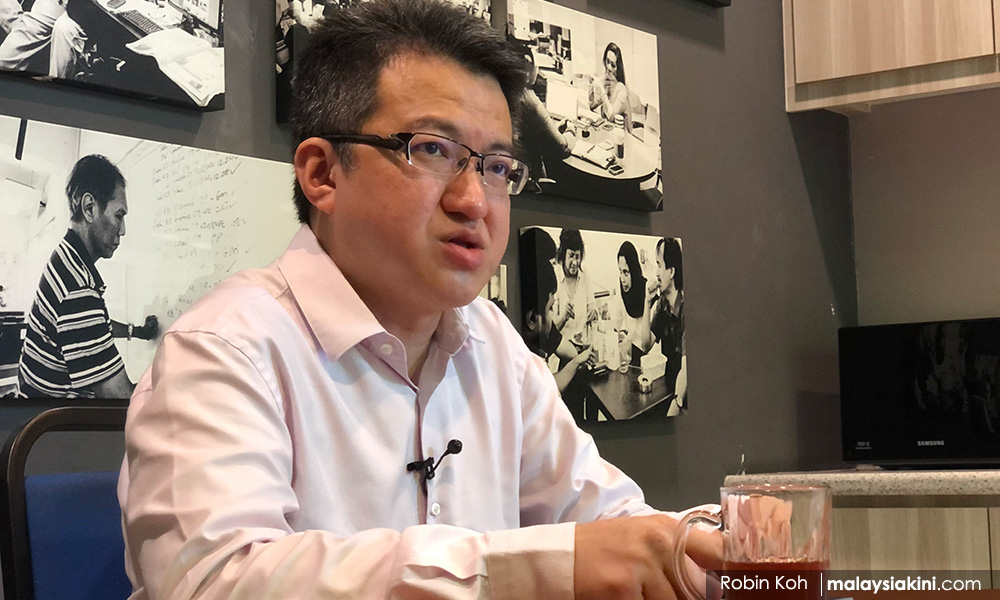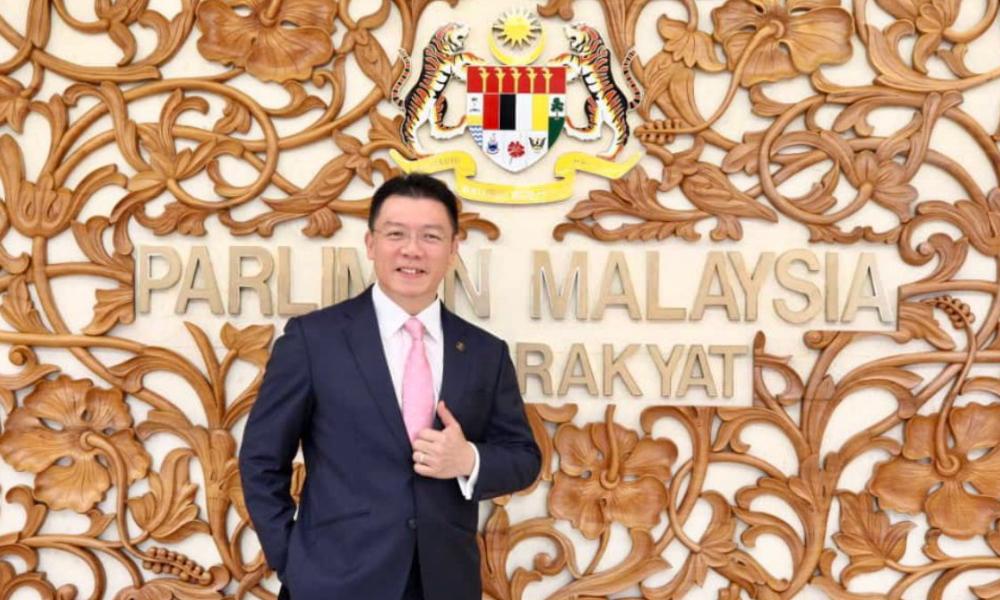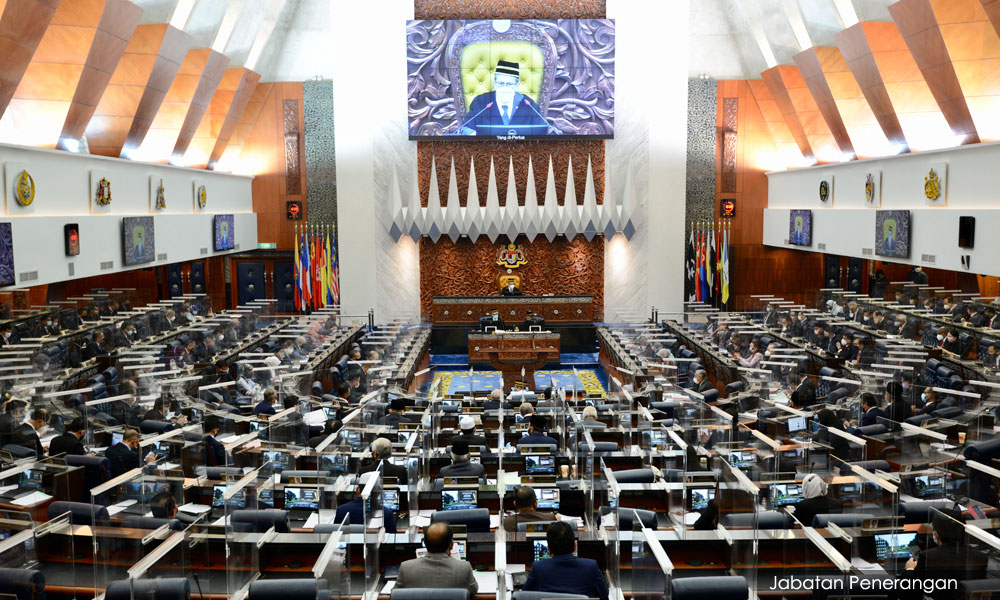MP SPEAKS | Every year, there will be a time when the attendance - or non-attendance, rather - of MPs during parliamentary debates will be brought up by NGOs, activists, and members of civil society.
Their frustration is understandable since many political parties were calling for the resumption of Parliament when the national emergency was announced earlier this year.
Shouldn’t the same political parties also take note of the attendance of the MPs representing these parties and their respective constituencies?
If the working person must “clock in” to work every day and be seen at the office, at least during pre-pandemic times, shouldn’t MPs also “clock in” to work at Parliament and attend parliamentary proceedings?
I think Parliament as an institution and individual MPs, myself included, and the political parties they represent have done a poor job in communicating to the larger public the relevance and importance of Parliament as an institution as well as the importance of parliamentary proceedings and the passing of legislation in the Dewan Rakyat and Dewan Negara.
This lack of public communication has resulted in an extremely low level of awareness among voters of the role and responsibilities of an MP in and out of Parliament.
There need to be further reforms to parliamentary proceedings to increase the effectiveness of individual MPs in Parliament. In addition, parliamentary proceedings must be shown to bring positive effects to voters.
Finally, the public must be made aware of how Parliament can impact the lives of voters in Malaysia, for good and bad, and in doing so, make people see the relevance of Parliament and parliamentary proceedings more clearly.
Former MP and former deputy defence minister Liew Chin Tong has probably spoken and written about the need for parliamentary reforms more than any other MP in the last 10 years, with the exception of perhaps Lim Kit Siang.
The introduction of the 2nd Chamber for the Dewan Rakyat to facilitate the answering of specific questions by a minister or deputy minister in order to shift some of the debate on local constituency matters from the main hall to this chamber was his idea and initiative.
It would be even better if additional questions and a more substantive debate on constituency-related matters be brought up in the 2nd chamber.

But the intention is that individual MPs would be able to follow up informally with the deputy minister or minister in attendance after the formal session in the 2nd chamber so that possible resolutions to these local constituency matters can be found.
Many other parliamentary reforms were introduced during the brief period of 22 months that Pakatan Harapan was in government including making an opposition MP the chairperson of the Public Accounts Committee (PAC) and introducing more parliamentary special select committees to allow more backbenchers to act as a check and balance and provide input points in a formal setting to the government.
Many of these reforms can be found in the excellent edited volume entitled “Law, Principles and Practice in the Dewan Rakyat (House of Representatives) of Malaysia” by the former speaker Mohamad Ariff Md Yusof together with the former Dewan Rakyat secretary Roosme Hamzah and Emeritus Professor Shad Saleem Faruqi.
There is one small parliamentary reform for which I can take a little bit of credit. Prior to the 14th general elections (GE14), all of the parliamentary replies to oral and written questions asked by MPs were not available online.
They were compiled in a physical booklet and distributed to all MPs. I would share these physical copies with Khairil Yusof of Sinar Project and his team would upload these replies to their website.
After GE14, these replies are now available on the parliamentary website. Former deputy speaker Nga Kor Ming also played a key role in pushing for this change in parliamentary process and now, journalists and interested members of the public can have access to these parliamentary answers.

In addition to the formal reforms that were introduced in Parliament during Pakatan Harapan's time in power, there was also a newfound spirit of discussion and participation where NGOs and members of civil society who were shunned by the previous government such as Bersih were now invited to organise forums and discussion sessions with MPs and other stakeholders in the august halls of Parliament.
Sadly, a combination of the pandemic, the change in government post-Sheraton Move, and the change in the speaker and a deputy speaker brought these parliamentary reforms to a halt.
In a sudden twist of events, the fall of the Perikatan Nasional (PN) government has given a new lease of life to discussions on parliamentary reform as a result of the Memorandum of Understanding (MOU) signed by the Keluarga Malaysia government and Harapan on Sept 13 in Parliament.
According to the MOU, half of the parliamentary special select committees will be chaired by MPs from the opposition.
An additional parliamentary special select committee on foreign affairs was announced on Oct 11 making it a total of 10 parliamentary special select committees.
The composition of all parliamentary special select committees was amended to have five from the government side and four from the opposition bench - it was previously five from the government and two from the opposition.
At the time of writing, it has not been announced which parliamentary special select committees would be chaired by MPs from the opposition bench. For the record, I am a member of the Finance and Economy Special Select Committee
There has also been an informal discussion surrounding the need for a third deputy speaker from the ranks of the opposition. This will need cross-partisanship support as it will require a constitutional amendment.
I believe that this move is necessary as part of the process of parliamentary reform and also to share the workload, especially if the number of days and hours for the house to sit is increased, which is a point that Liew has advocated for in the past.
Liew has also advocated for the proceedings of the individual parliamentary special select committees to be broadcast “live” so that interested stakeholders can observe the content presented to the committee and the questions that are being asked by individual committee members.
Former deputy speaker Nga Kor Ming has also proposed a number of much-needed reforms to Parliament, among which include:
- Introducing a Parliament Services Act to increase the independence of the staff in Parliament
- Adding two more parliamentary special select committees – one to monitor the implementation of each year’s budget and another to discuss proposed government bills before they are tabled in Parliament
- “Live” proceedings of an expanded second chamber where local constituency issues can be debated.
To the proposals by Liew and Nga, I will add the following:
1. Increase allocated time for tabling and debating of legislation
The passing of legislation usually takes place towards the end of each parliamentary session leaving very little time for substantive debate.
Sometimes, the passing of certain bills is postponed simply because there is not enough time to debate and pass them during the Parliament session.
There are many laws in the country which require amending and updating. A pipeline of these bills can be discussed and prioritised in a special parliamentary select committee and the order of government business needs to be changed so that the debate on these bills can be held earlier during a Parliament session.
2. Allow MPs to record their parliamentary speeches, give more time for ministers to answer questions raised by MPs
Currently, most of the time allocated in Parliament is for MPs to give their speeches either during the year-end budget debate or when debating the Yang di-Pertuan Agong’s speech.
Most MPs would read a prepared script. For example, four days would be allocated for MPs to debate the king’s speech and only two days would be allocated for the ministers to answer questions raised by MPs with about 45 minutes allocated to each minister.
It would be a far better use of time for MPs to record their speeches which can be uploaded onto the Parliament’s website which can then be shared through other social media platforms such as YouTube.
The civil servants who are preparing the ministerial responses can then refer to these recorded speeches.
I would also propose that a limited number of MPs from both sides be allowed to speak from the floor of the Dewan Rakyat - five from each side, let’s say - and each person can be given a longer time to debate and allow for interventions from fellow MPs.
This will also “solve” the problem of MPs being absent from Parliament (especially during the afternoon sessions) and provide more time for ministers to answer queries raised by individual MPs either from the floor or from their recorded speeches.
3. Increase Parliament staff to assist special select committees, running of an expanded second chamber, and preparation of additional reports and public documents
Currently, both houses are understaffed, and this affects the proper functioning of the special select committees in terms of preparing reports and finding suitable dates to invite the right people to attend these committee hearings.
The number of staff can be added in conjunction with the introduction of a Parliamentary Services Act so that people who have a genuine interest in the functioning of Parliament can be hired to fill the ranks of parliamentary staff.

4. All proceedings of parliamentary special select committees should be recorded as part of official Hansard and shown “live” to the public
This would allow the public to see that MPs are working in Parliament even if they are not seen in the Dewan Rakyat.
Showing the proceedings “live” would also allow the public to gauge the performance of the members of these committees (especially the chair) and also the response of those who are called to give briefings to these committees (including and especially the senior civil servants)
5. Allow the establishment of joint committees of both houses on special issues such as the one established to discuss prison reforms
Again, this was an initiative of Liew's that is a genuine demonstration of what cross-partisan cooperation can achieve.
6. Compulsory briefings by the minister/deputy minister to the media and to the MPs on any new laws/amendments which are tabled, including on the record Q&A sessions for the media during these briefings
Right now, the only explanation given by the minister/deputy minister for the introduction of new laws and amendments is in the Dewan Rakyat itself when these laws are being tabled.
If briefings before the tabling of these laws can be given to journalists and Q&A sessions be allowed, it would increase the ability of journalists to explain the importance and perhaps, point out some of the shortcomings of these new laws. The Fourth Estate must be allowed to play its role.
7. Allow a hybrid system of online and physical parliamentary proceedings especially in light of the endemic nature of the Covid-19 pandemic
This would also allow MPs who are travelling overseas or who have to attend certain constituency emergencies to continue to take part in parliamentary proceedings. This would require an amendment to the standing orders.
8. Encourage and facilitate more public, NGO, and academic discussion on the role of Parliament and parliamentarians
Academic discourse and debate on the role of Parliament and MPs is part and parcel of a healthy, functioning democracy.
Although these efforts may not seem as important as debating bills or bringing up constituency matters, it matters in the larger ecosystem of the need of continual reforms and improvement to the parliamentary process.
The Journal of the Malaysian Parliament was introduced earlier this year and it is a good start in terms of academic and parliamentary discourse.
More opportunities for such discourses should be encouraged in Parliament such as the ones which Bersih and other NGOs conducted in Parliament when Harapan was in power.
9. Invite MPs to conduct tours for school children who visit Parliament as public outreach initiative
Before Covid-19, school children used to visit Parliament on a regular basis, and they would be invited to sit in the Dewan Rakyat for a short period of time to observe parliamentary proceedings and debates.
It would be a good “assignment” for MPs and even ministers and deputy ministers to conduct Parliament tours for school children and other members of the public on a rotation basis.
It would be a good experience for the school children to be briefed by MPs on the importance of parliamentary proceedings.
Who knows, this may even encourage better behaviour on the part of some MPs when they realise that school kids are paying attention to what they say and do in the Dewan.
10. Strengthen social media outreach of the Malaysian Parliament
At the time of writing, @MYParlimen on Twitter has 14.4k followers, @parlimenmalaysia on Instagram has 69.7k followers, @parlimenMY on Facebook has 77k followers.
All of these social media accounts have very low levels of public engagement. If we are to make Parliament more relevant to the public, we need to showcase the proceedings which are happening in Parliament.
Of course, this must be done in a non-partisan manner. With a good social media team in place, I believe that this can be done, even in a fun way that makes Parliament more easily understandable and accessible especially to the younger generation.
Perhaps the social media team should take some guidance from Syed Saddiq Syed Abdul Rahman, Hannah Yeoh, Fahmi Fadzil, and Khairy Jamaluddin who are among the most effective MPs at using social media?
READ MORE: MP SPEAKS | My role as an MP – Part 2: Constituency servicing
ONG KIAN MING is the Bangi MP and DAP's assistant political education director. This is part one of a series by him to explain the roles and responsibilities of an MP using his experience as a reference point.
The views expressed here are those of the author/contributor and do not necessarily represent the views of Malaysiakini.

